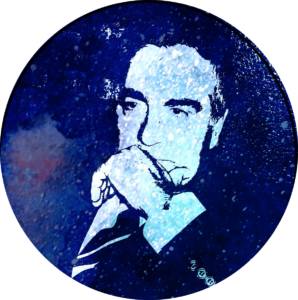
Upon Reflection (7 April)
Time to consider weekly global headlines in an ever-changing world
Selected News Headline
for
7 April 2018
Don’t get distracted. John Bolton is a huge threat
April 5 2018, London, United Kingdom – Financial Times – I have deliberately chosen not to say too much about the appointment of John Bolton as President Trump’s new national security adviser, who replaced General H.R. McMaster – essentially waiting for the dust to settle.
I recall having spent hours ruminating over Bolton’s diplomacy when he was President George W. Bush’s Ambassador to the United Nations. At that time, I was doing a lot of media commentary leading up to the 2003 Iraq War. Bolton was then part of Bush’s inner circle of ‘neo-cons’, or ‘liberal-hawks’, who, during the 1960s became disillusioned by the Democrat’s foreign policy pacifism and drifted right. Far right, in terms of how they believed American strategic power should be exercised.
The neo-cons essentially drove the muscular part of the War on Terror.
They believed in forceful regime change to protect American interests. Their initial tactical and strategic successes in Afghanistan during October-December 2001 were replaced by the losing strategy of ‘democratic conversion’ and nation-building. Failing to understand the nuance of local conditions, their messianic crusade to turn a politically underdeveloped and repressed society into a functional democracy quickly ran aground. Afghanistan became an open sore of American foreign policy – an interminable, complex counter-insurgency campaign with no clear exit strategy that has roped in Pakistan, India, Iran and Russia as other key contenders for influence.
However, failing to see the folly of this activity, they picked a fight with long-time Middle Eastern bad-guy, Saddam Hussein.
Removing him and turning Iraq into a functional democracy would turn the country into the shining light of the Arab Middle East – an exemplar of what could be. Iraq, while governed by a brutal dictatorship, was a far more sophisticated society than Afghanistan. Remove the dictatorship and its supporting infrastructure, the repressed Iraqis would easily meet their own ambitions for a free society since that was how the neo-cons thought. They simply assumed that in the absence of the instrumentalities of Ba’athist political repression, Iraqis would immediately organise to protect new-found freedoms.
However, the neo-cons operated in a political vacuum not of this world.
Other regional and international players, state and non-state actors, each had their own ambitions of what to do with an Iraq without the strong hand of Saddam.
They outmanoeuvred the neo-con agenda swiftly and easily.
Iraq without Saddam became a divided state. The best part of it was dominated by Iran, a point John Bolton took strong objection to. The rest became a jihadist ‘utopia’, with the most organised and most violent extremist group, Islamic State, carving out a caliphate in the less hospitable parts of Iraq’s western desert. Another disaster with neo-con wilful ignorance written all over it.
Now, under Trump, John Bolton, has been given a second chance to fly the neo-con flag in the White House.
Some commentators are predicting the end of the world.
Bolton, they say, is an extremist, and now having been given his second chance to influence American foreign and strategic policy – he will seek to ensnare the United States in wars to rectify past mistakes. He has been and presumably still is an advocate of a hard-line against North Korea. But more particularly, he is an enemy of Iran, a country he blames for America’s failed Iraq regime change strategy of 2003 and which he sees as a strategic cancer in the region, waiting to be excised by American military force.
Trump too is not a fan of Iran and wants to roll-back the Obama era reconciliation with the country, starting with the Iran Nuclear Deal. His choice of Bolton as his national security adviser gives the impression of having chosen the one person the world is very afraid of. It’s all part of Trump’s foreign policy and strategic ambiguity, though strategic unpredictability is probably closer to the point. If and when Trump meets with Kim Jong-un, he’ll want to have Bolton act as his heavy hand, with Pyongyang uncertain of America’s intentions. With Iran, having Bolton acting as the US President’s whip will give Rouhani, but more particularly Iranian hard-liners pause for thought.
Of course, there are other noted US commentators such as Stephen M. Walt who argue that Bolton, coming from the ‘establishment’ is not the unpredictable ‘wild man’ of US foreign policy that others make him out to be. Bolton may be a tough talking hawk, but he is ultimately grounded in conservative rationalism.
The danger is that while Trump may appear in control of events, Bolton brings with him the sympathies of Dick Cheney and Richard Perle, both no doubt lurking in the background eager to ‘give advice’ to Bolton as they seek to re-issue their simplistic black and white neo-con agenda. A neo-con conspiracy is likely where the tail, i.e. Bolton wags the dog, i.e. Trump. This is where the true danger resides. And this spells more ructions for an already deeply divided White House. According to the neo-con narrative, their job was left unfinished with the end of the Bush administration. They now have a second crack at power and they are likely to use it.

